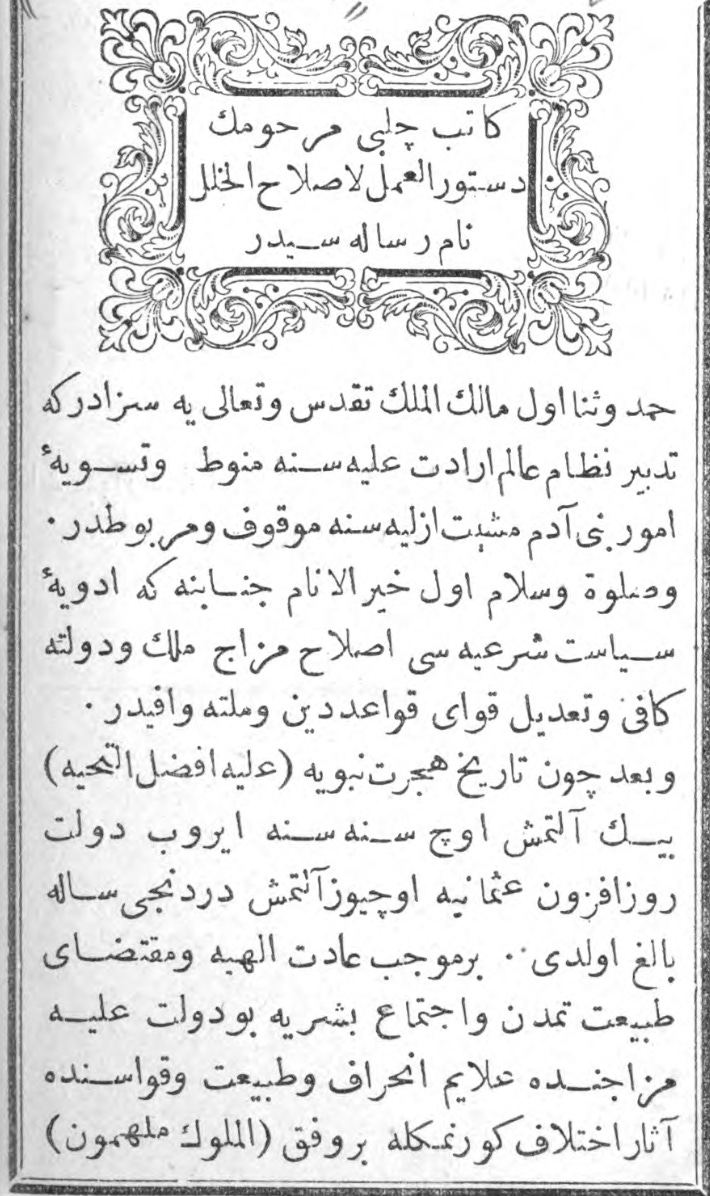On The Guidelines for the Rectification of State Disorder According to Katip Çelebi
Part 1 of a translation of Katip Çelebi's Düstûr ül-Amel fî Islâh il-Halel
This is part of a new series of subscription-only posts I’m trying out. I’ll be focusing on providing translations of pre-modern texts that are lesser-known in the modern world.
Of course, there’s no obligation to subscribe and if you ever want access to a post or two but don’t want to (or can’t) subscribe, feel free to contact me and I’ll usually be happy to send you a copy anyway.
Katip Çelebi (d. 1659) was a 17th century Ottoman scholar and bureaucrat who serves as a representative of the heights of Ottoman scholarship that crossed boundaries between political theory, history writing, geography, the Islamic sciences, and more. Also known as Hajji Khalifa, he worked in the Ottoman imperial bureaucracy, particularly in the treasury, giving him insights into Ottoman administration at the highest levels and what he saw as cracks in the system that would inevitably lead to its decline.
The below is an excerpt from his text Düstûr ül-Amel fî Islâh il-Halel (The Guidelines of Action for the Rectification of Disorder). Despite the Ottoman Empire being at its peak geographic extent in the mid-17th century, Çelebi and other Ottoman writers were concerned about worrying trends regarding the growing bureaucratic and military apparatus that couldn’t easily be resolved.
Of particular note to Çelebi is that empires have a natural growth, apogee, and decline, as explained in Ibn Khaldun’s Muqaddimah, which had recently become popular among the Ottoman learned class and which clearly has a strong impact on Çelebi’s understanding of rulership in his Düstûr ül-Amel. Çelebi goes a bit further, however, in connecting the condition of a state directly to the medical condition of man, highlighting components of society and analogizing them to the four humors of Galenic medicine. Just as a human body often needs treatment, so does a state, argues Çelebi.
The text is a relatively short one, particularly compared to his more encyclopedic works like his famous Kashf al-Zunūn. What follows is the beginning of this short book, translated from Ottoman Turkish into English. In subsequent posts I will work on translating the remainder of the text.
Translation:
These pages have been arranged as an introduction, three chapters, and a conclusion, and I have named it Düstûr ül-Amel fî Islâh il-Halel (The Guidelines of Action for the Rectification of Disorder). The introduction concerns the nature of the state. The first chapter is on the condition of the subjects. The second is on the military. And the third is on the treasury. The conclusion offers instructions on how to repel the causes of disorder and fix the state’s disordered temperament.
Introduction:
It is no secret that the meaning of rulership and sovereignty (mülk ve saltanat) is to provide order to human society according to a particular form. The ones who are acquainted with the deeper nature of things and who understand the particularities of both theoretical and practical wisdom claim that the societal condition of man resembles his individual condition.
Keep reading with a 7-day free trial
Subscribe to Between Rusafa and Ramla to keep reading this post and get 7 days of free access to the full post archives.




